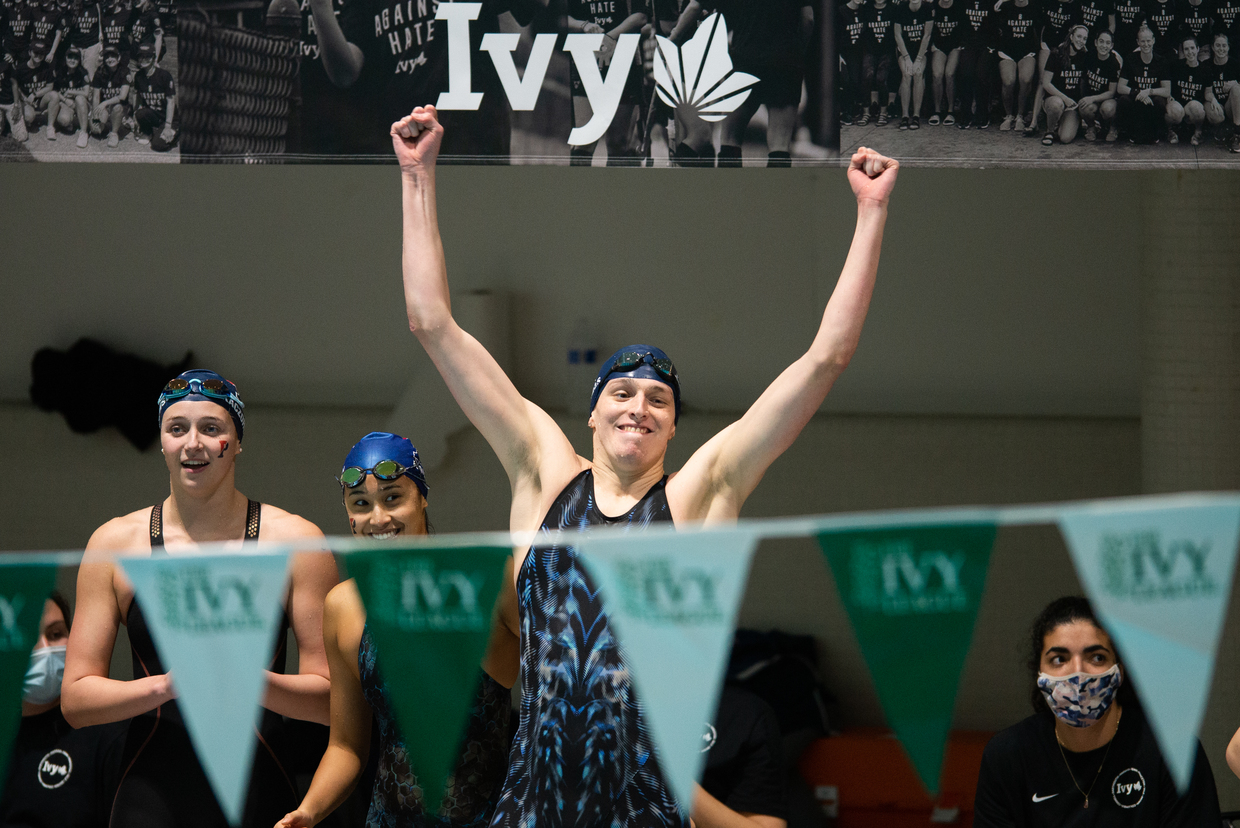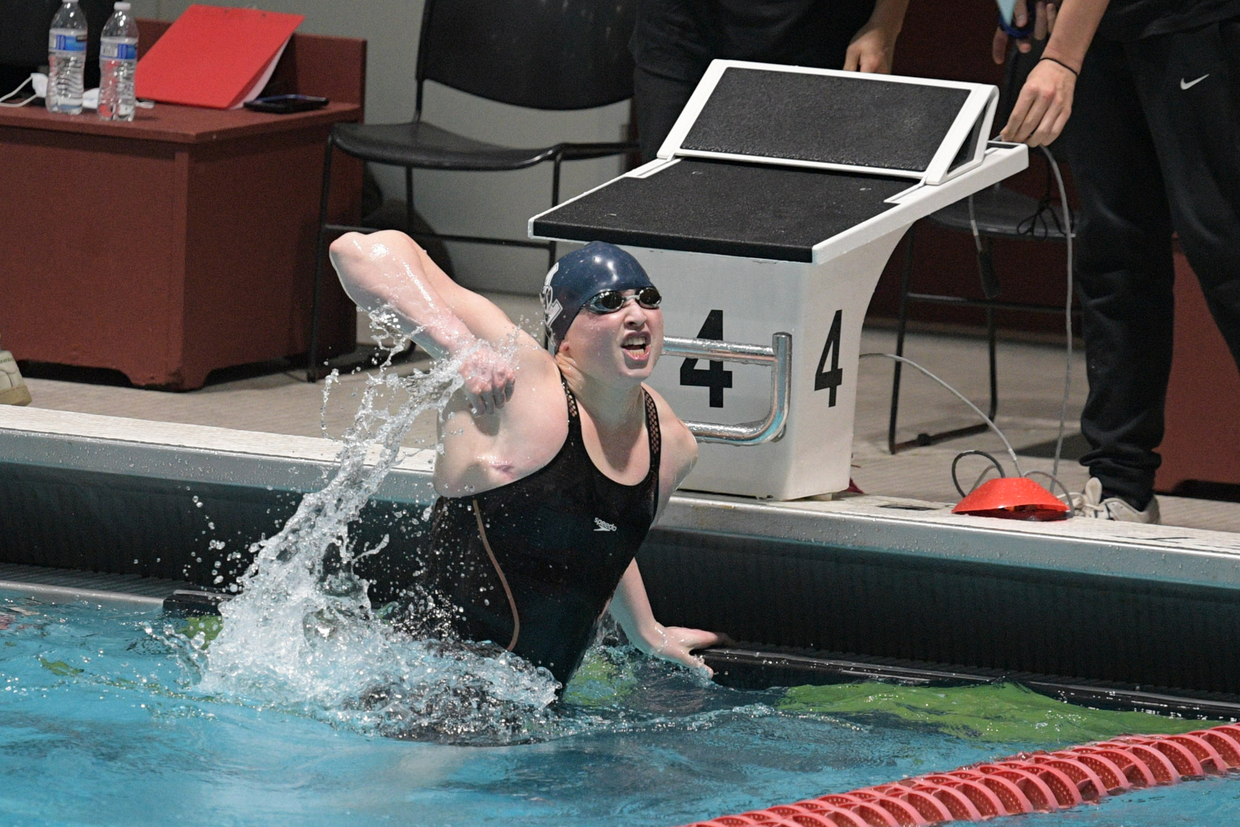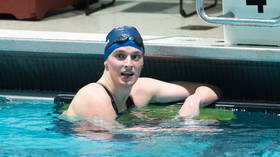Trans swimmers ‘unfair’ to biological women - US Olympian

Nancy Hogshead-Makar, the former US Olympian who now fronts the ‘Champion Women’ organization aimed at promoting equality and accountability in sports, says that the current discussion centered around the inclusivity of trans athletes into female sports neglects to take into account the negative impact it can have on biologically-born women.
American swimmer Lia Thomas has become the public face of one of the biggest debates currently raging in sports: does a trans athlete's right to compete outweigh the same rights of their cisgender peers, and does this inevitably lead to an uneven playing field wherein certain stances are adopted which threaten the sport's very ethos?
"They’re only considering the unfairness to Lia Thomas, they’re not looking at the unfairness to biological women," Hogshead-Makar said to RT.
"This is an issue of competing rights, where the rights of transgender athletes to be able to compete, and the fairness of that, as compared to the biological women."

Thomas, the 6ft 4in athlete who previously competed for the male Penn team in collegiate events in the United States, has again been central to controversy as footage released this week showed her dominating her fellow competitors at a recent swim meet, prompting more questions as to when exactly inclusivity supersedes fairness.
Advocates of Thomas' right to compete against women will point to testosterone suppression as something which levels out any natural advantages.
Not so fast, says Hogshead-Makar.
"I’m a civil rights lawyer, and I depend on listening to the scientists who come up with the research," she said.
"What male puberty, which is this long-acting testosterone, gives to the human body are these huge impacts, depending on the sport it’s usually between about 8% and 20% – sometimes it’s as much as 100% – gaps between men’s and women’s ability to perform.
"So if we only had one basketball team, and you see who makes it, because of male puberty, because of testosterone, you would never see women being able to make that team. We have separate-sex sports specifically to give women opportunities."

But furthermore, Hogshead-Makar says that Thomas - as well as another swimmer who is in a similar situation, Iszac Henig - have taken steps to preserve any competitive advantages which have resulted out of their decisions.
"Notice that they both want to win," she said. "They’re both choosing events in swimming where they can win. If Iszac Henig wanted to present as their gender identity, they would go on gender-affirming hormones, it would be illegal to still participate in the women’s and girls’ category.
"But they went ahead and delayed taking testosterone so that they could compete in the girls and women’s category, in order to be able to win.
"In my era, when I swam back in the 70s and 80s, we swam against the East German swimmers who were taking lots and lots of drugs like testosterone, and they were still nowhere near the men, they could not compete with the men, so they were a little bit better than we were, but not [like the men]," Hogshead-Makar added.
"Iszac Henig knows that. He has chosen to wait to take testosterone until after he finishes his competitive career, because he wants to win.
"I’ve been saying the same thing for the last 30 years as a gender equality advocate in sports. If you want girls and women to have equal opportunities to participate in sports, they need to have their own team, they need to have a team that is recognized based on biology.
"Because that is the big difference, it’s going through male puberty which gives somebody this huge sports advantage. I think we all know this, people who are in sports actually know it better, because swimming in particular we train together, we work out together, so we know how much faster men are than women. There’s no amount of good coaching, good training, healthy eating that can equalize those performances."
Thomas again hit the headlines earlier in February when an anonymous letter sent by 16 members University of Pennsylvania women’s swimming team called for Thomas' gender identity to be preserved but stated that this differs from the biology of one's sex, and how this can manifest in a sporting environment.
And as Hogshead-Makar said, the fact that the letter was sent anonymously was a clear signal that its authors were wary of being ‘canceled’ for speaking out on such a divisive topic.
"I know exactly why they didn’t put their name on it [the letter], it’s because they were told that if they did, they would never get a job, that they would not get in graduate school, that the new school would Google their names and see they were attached to this letter, and that it would limit their future employability," she predicted.
"That they would be ‘canceled’. They just could not take the risk. Even the parents still would not sign using their names.
"If you look around, it wasn’t just the Penn students that didn’t sign their name, we know that most of the female athletes were not invited to talk to the media, they were not asked, ‘What do you think?’ They were not asked by the NCAA, ‘Should Lia Thomas compete in the women’s category?’
"They have been silenced. They absolutely cannot talk about it. We need to have more people like myself and others, other athletes, come forward and be supportive of biological women having their own category in sport."













